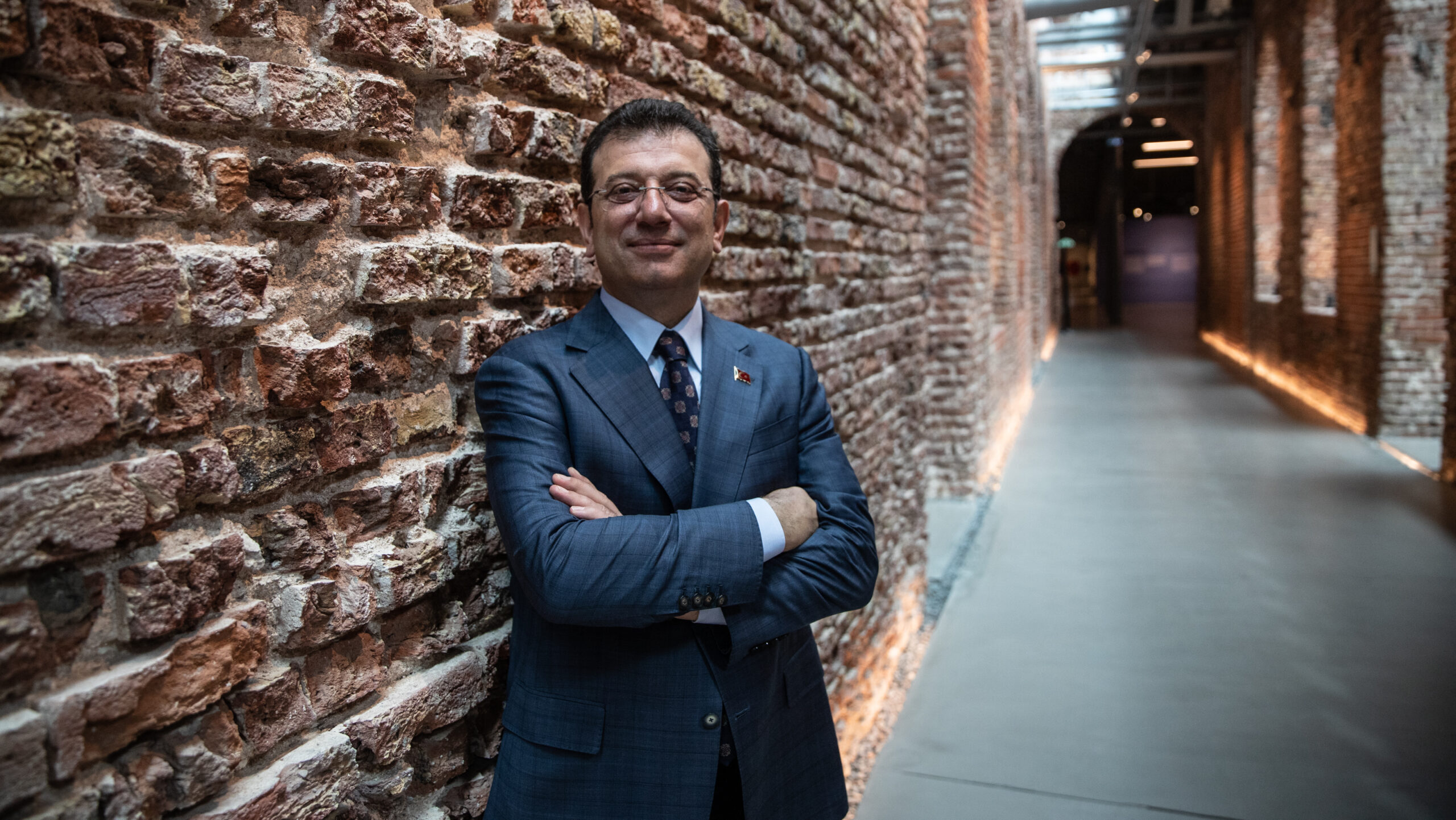Imamoglu’s Hamas Terror Label Stirs Backlash, Signals Aims for Presidential Appeal – Analysts
Istanbul Mayor Ekrem Imamoglu’s comments have stirred domestic criticism but may appeal internationally, reflecting his presidential ambitions. However, critics argue this may alienate some voters
Istanbul mayor Ekrem Imamoglu’s comments, which labeled Hamas a terrorist organization, are an attempt to appear presidential ahead of a potential run for office in 2028, analysts told The Media Line.
Imamoglu, a member of the main opposition Republican People’s Party (CHP), is widely considered the most popular opposition politician in Turkey and is seen as a strong challenger for the country’s top office in four years.
During an interview with CNN, he said that any group that kills a mass amount of people is a terrorist organization.
“Hamas, of course, carried out an attack in Israel that we are deeply saddened by, and any organized structure that carries out terrorist acts and kills people en masse is considered a terrorist organization by us,” he said.
Imamoglu quickly followed up his comments on Hamas by stating that he stands against the “brutal oppression of Palestinians.”
A spokesperson for the AKP, Ömer Çelik, criticized Imamoglu for his comments, stating that they were “completely wrong.”
Devlet Bahceli, the leader of the ultranationalist Nationalist Movement Party, which is allied with Erdogan, said that Imamoglu’s comment on Hamas meant he was turning his back on babies who had been killed.
Yurter Ozcan, the CHP representative for the US, told The Media Line that he himself has in the past called Hamas a terrorist organization, as has the leader of the party, Ozgur Ozel, suggesting it is an official position of the party.
Give the gift of hope
We practice what we preach:
accurate, fearless journalism. But we can't do it alone.
- On the ground in Gaza, Syria, Israel, Egypt, Pakistan, and more
- Our program trained more than 100 journalists
- Calling out fake news and reporting real facts
- On the ground in Gaza, Syria, Israel, Egypt, Pakistan, and more
- Our program trained more than 100 journalists
- Calling out fake news and reporting real facts
Join us.
Support The Media Line. Save democracy.
Ömer Özkizilcik, an Ankara-based non-resident fellow at the Atlantic Council, believed Imamoglu’s comments were aimed at an international audience and said the remarks were domestically unwise and would not help his popularity.
Özkizilcik believed the remarks were aimed at the international community and that Imamoglu saw himself on the path to Turkey’s top office.
“It shows that Imamoglu has already begun to prepare for his presidential candidacy,” Özkizilcik said.
Salim Cevik, an associate at the Centre for Applied Turkish Studies at Germany’s Stiftung Wissenschaft und Politik, told The Media Line that Imamoglu’s comments were likely meant to show that he can talk about foreign policy and is capable of acting as president.
“I am also not sure how smart it is to start commenting on foreign policy [on] such a controversial and sensitive topic,” Cevik wrote in a message to The Media Line.
Cevik stated that the Turkish president has used strong rhetoric in support of Hamas in response to the gains of the Islamist New Welfare Party, whose vote share in nationwide local elections last month seemed to have contributed to losses by Erdogan’s Justice and Development Party.
“He is, in a way, cornered. He takes more radical positions to prevent the growth of [the New Welfare Party], but this creates risks of alienating his more centrist voters,” Cevik stated.
While Erdogan rejected the killing of civilians days after the October 7 attacks, he became more strongly vocal against the Israeli government as the war in Gaza went on, calling Netanyahu a war criminal and Hamas a “liberation movement.”
The Turkish president and his top officials have met with Hamas, both abroad and in Turkey.
Last month, Erdogan stated that he didn’t believe Hamas would be forced to leave Qatar when asked by a journalist about the possibility of Hamas’ headquarters moving to Turkey.
“The situation in Gaza is what matters, not the whereabouts of Hamas leaders. Indeed, no such information has been provided to me regarding their position in Qatar concerning the matter you stated,” he said, according to a transcription of the interview issued by his office.
Özkizilcik believed it was not feasible for Turkey to host Hamas’ headquarters and political risk as a member of NATO.
Ties with the US are a central part of Turkey’s security policies, and a worsening of relations has damaged Turkey’s economy in the past.
“A balancing act that Qatar was not 100 percent able to do, I doubt that Turkey can do such a balancing act,” Özkizilcik said.
He believed that it would be a security risk for Hamas to make such a move since many foreigners come to Turkey, a tourist hotspot, and it could face possible attacks from its enemies.
“We have many people going in and out, and the Israeli Mossad is a capable intelligence organization. Qatar is much more safe for them than any potentially other place,” he said.



